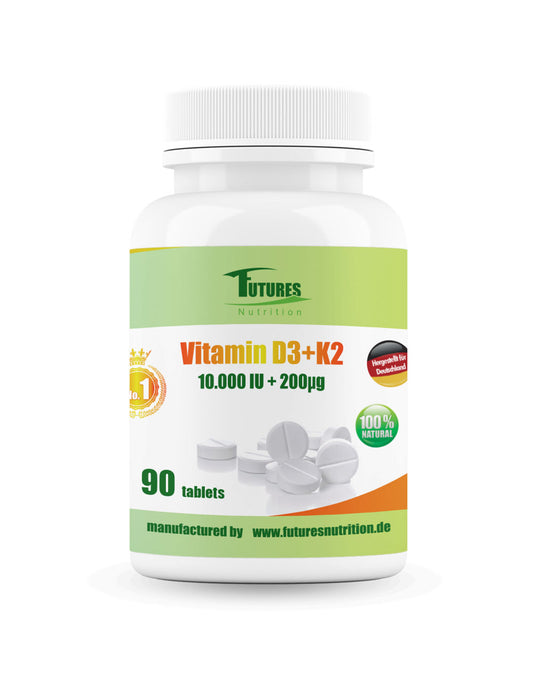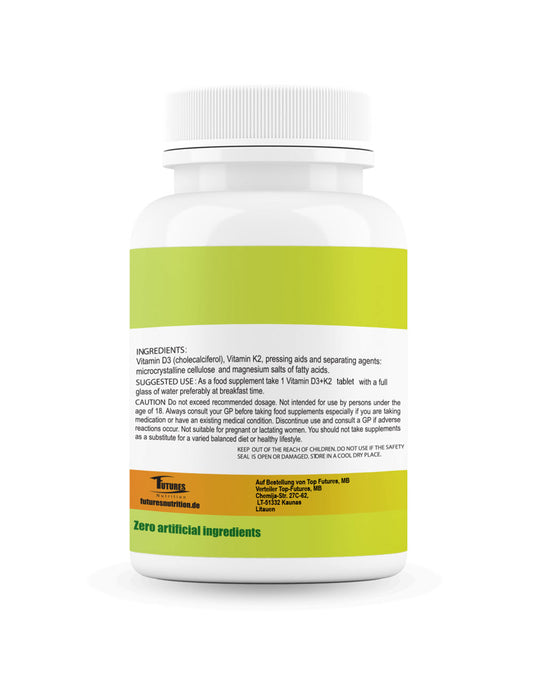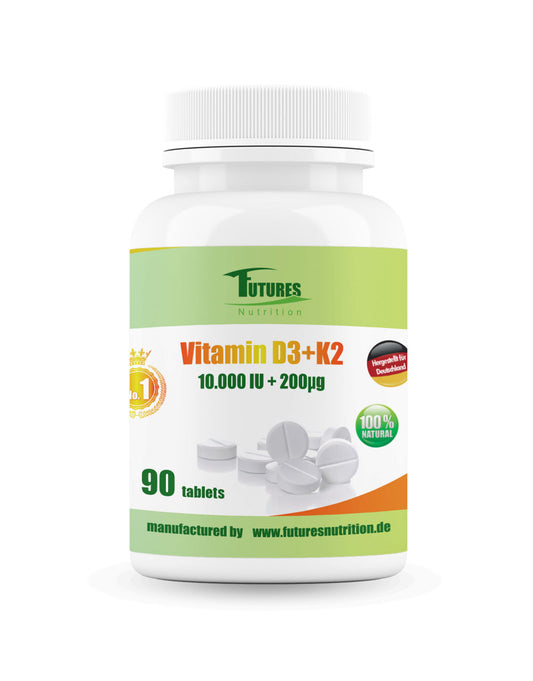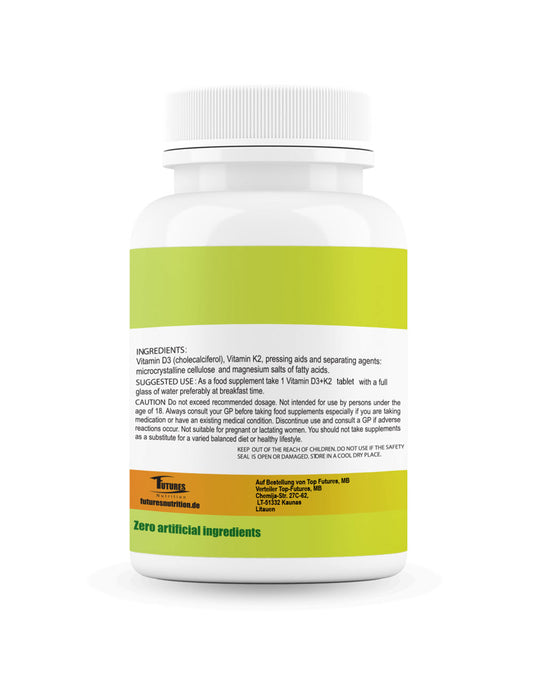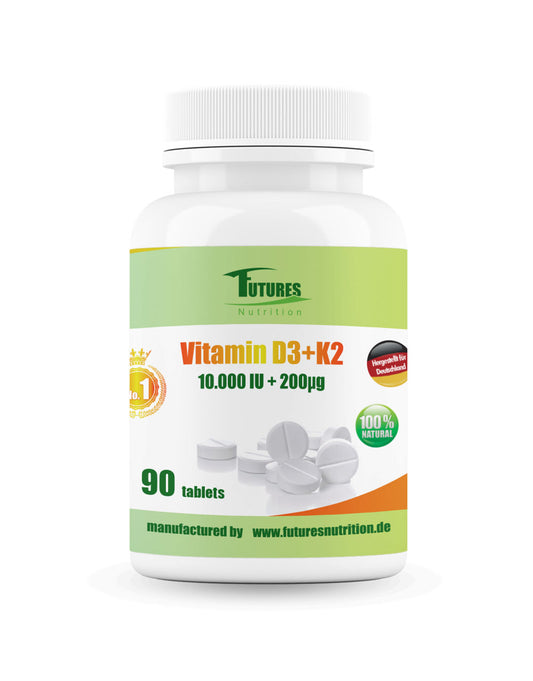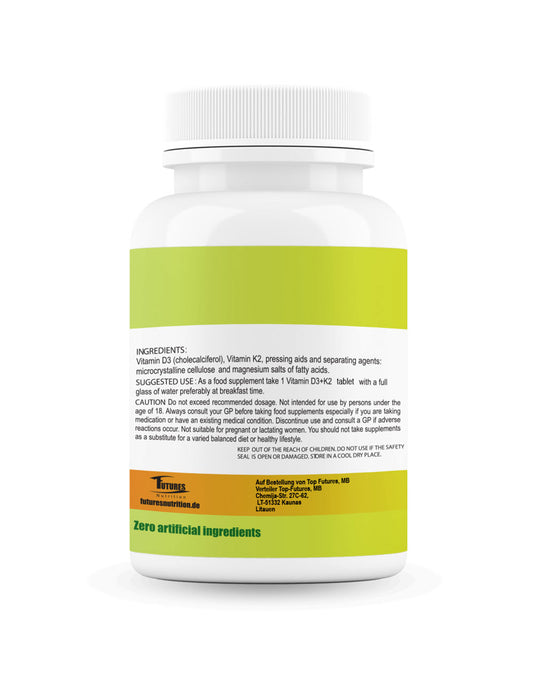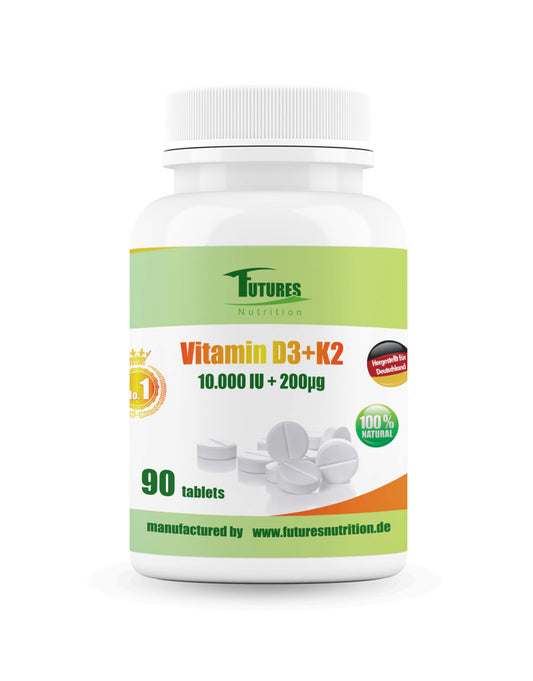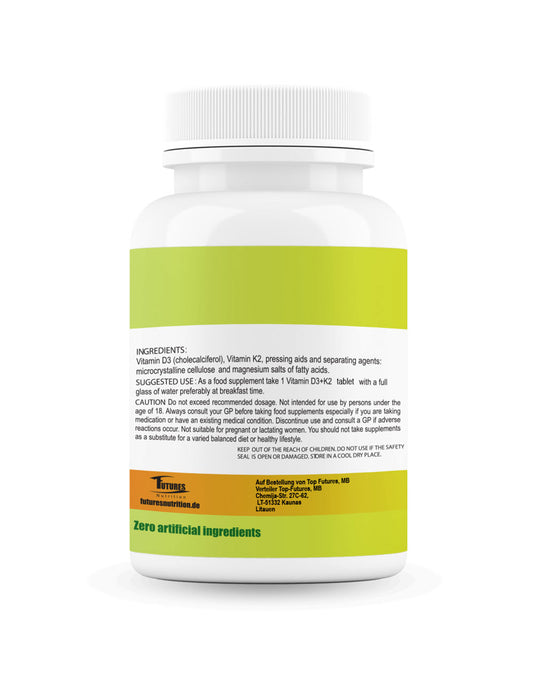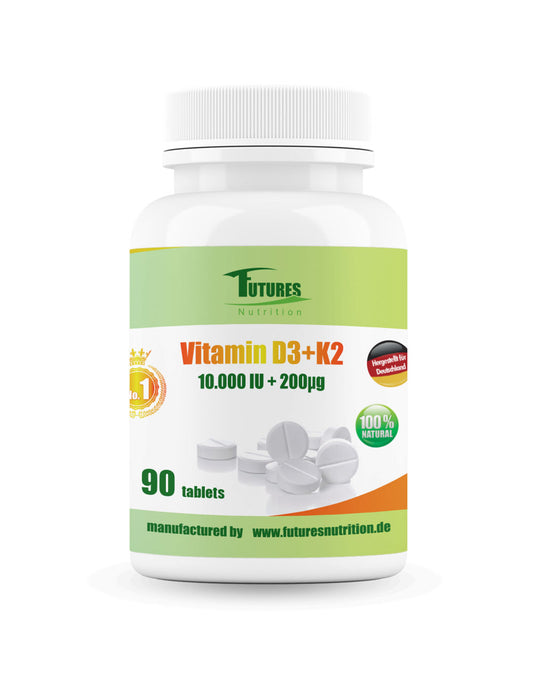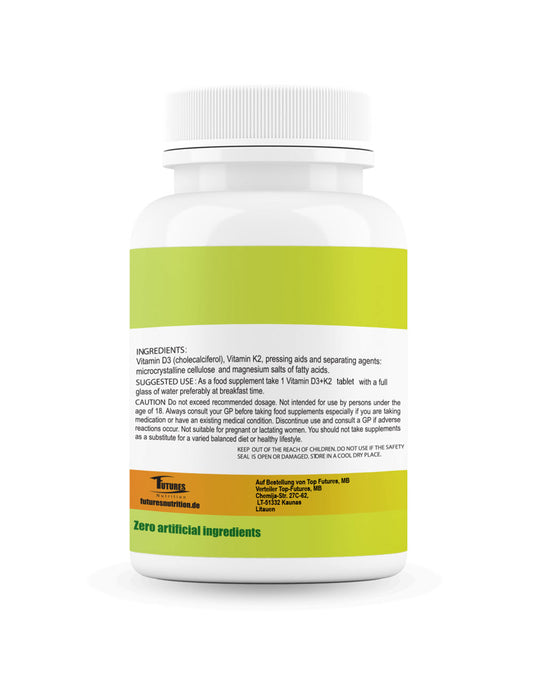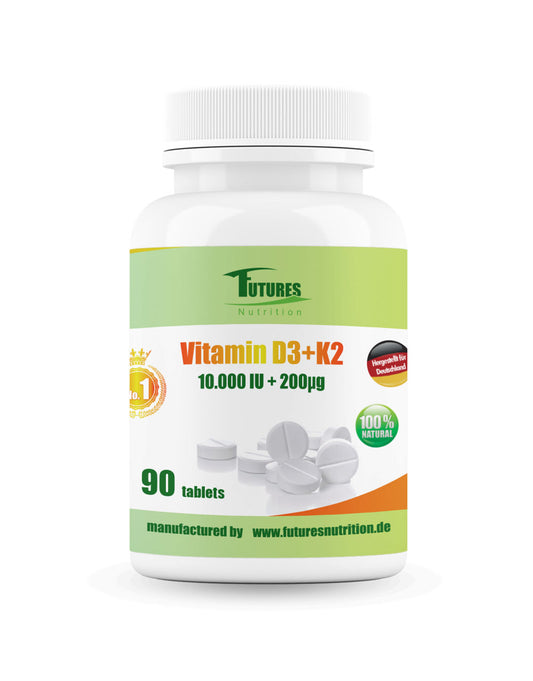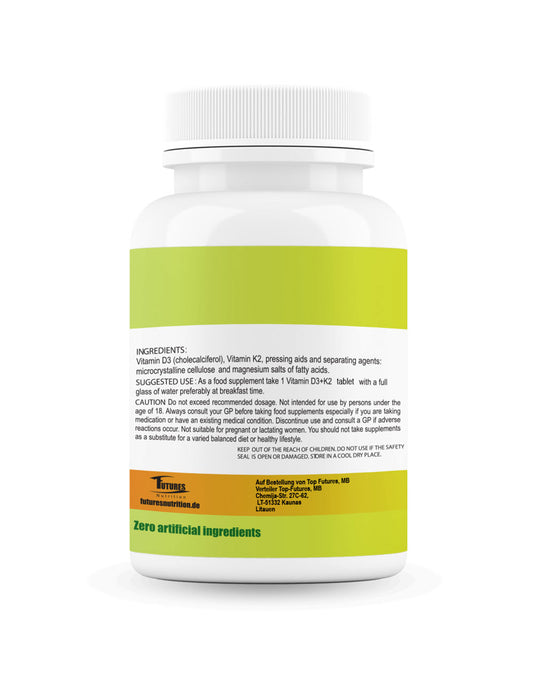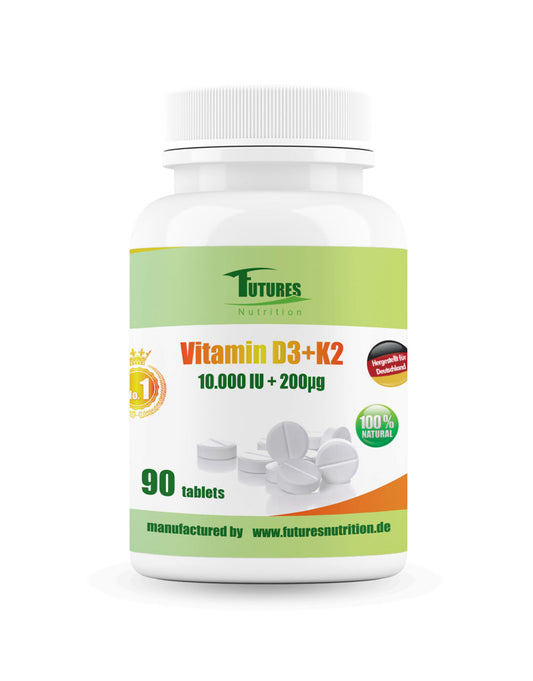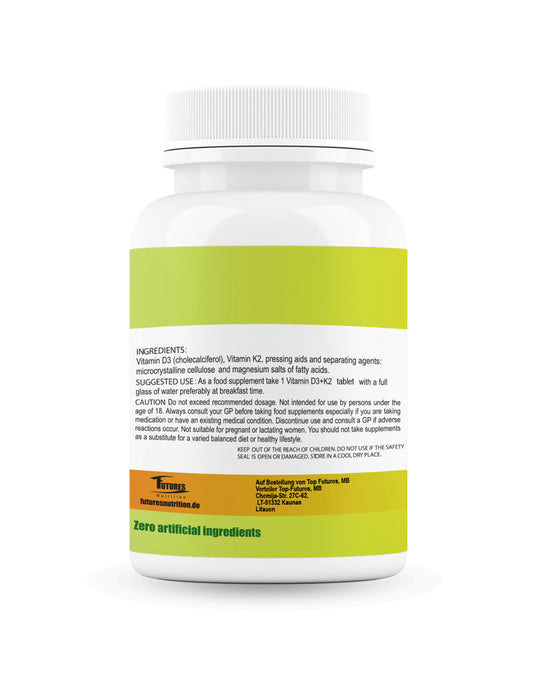Vitamina D di ottima qualità. Consiglio questo prodotto.
Collection: Vitamin D3 K2 10000 IU 90 tablets
-
Vitamin D3 K2 10000i.e 90 tablets
Regular price €8,79Regular priceUnit price / per€7,99Sale price €8,79 -
2 x Vitamin D3 K2 10000i.e 180 tablets
Regular price €15,39Regular priceUnit price / per€13,99Sale price €15,39 -
3 x Vitamin D3 K2 10000i.e 270 tablets
Regular price €21,99Regular priceUnit price / per€19,99Sale price €21,99 -
5 x Vitamin D3 K2 10000i.e 450 tablets
Regular price €32,99Regular priceUnit price / per€29,99Sale price €32,99 -
10-X Vitamin D3 K2 10000I. E 900 Tablets
Regular price €60,48Regular priceUnit price / per€54,98Sale price €60,48 -
50 x Vitamin D3 K2 10000i.e 4500 tablets
Regular price €241,98Regular priceUnit price / per€219,98Sale price €241,98 -
100 x Vitamin D3 K2 10000i.e 9000 tablets
Regular price €351,99Regular priceUnit price / per€319,99Sale price €351,99


